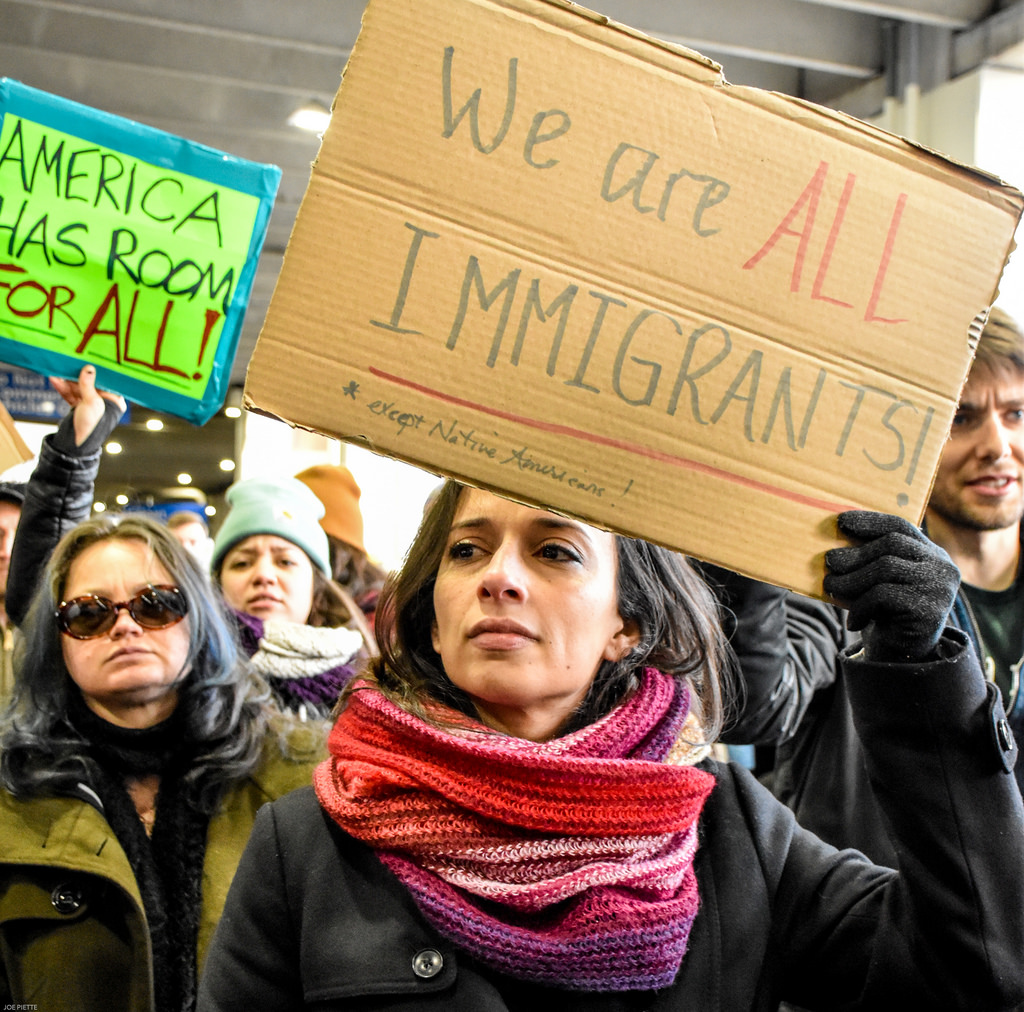Science is one way for human beings to interpret and develop the world, and politics is another way, yet it is time to notice science and politics are no longer running in parallel. In the US, politics is affecting science and harming science progresses.
Since the beginning of this year, Donald Trump issued and revised policies limiting immigration from Muslim-majority countries. Following Nature’s reports, travel bans have negatively impacted scientists and their researches in and outside of the US. Active and future scientists faced extreme travel difficulties, and a few international science conferences and collaborations were canceled or delayed due to the ban.

“No Ban, No Wall Protest at PHL Airport” by Joe Piette. Image from Flickr. CC BY-NC 2.0
In January, Trump imposed the first short-term block on seven Muslim-majority countries, in which perspective science researchers accepted into American institutions before January could not obtain a visa. Some of them lost the science education and research opportunities they had earned and been guaranteed. Samira Samimi, a glaciologist from Iran, had a plan of going to Greenland from New York to study snowmelt. After the ban became effective, she could no longer meet with her US team and fly to Greenland. Samimi faced potential consequences of ceasing her research project and delaying her PhD degree.
“None of this is right. There is no way this helps us or our science.” says Mike MacFerrin, a glaciologist colleague of Samimi’s.
A similar tragedy happened to Hani Goodarzi, a cancer biologist at the University of California, San Francisco. He was forced to cancel a talk at the University of Calgary in Canada, because as an Iranian migrant, he was under the fear of not being able to return to the US after leaving the country.
It is not fair for scientists to take the consequence of politics, and it is worse that life-save science researches also suffer from politics.
International projects on combatting disease were heavily interrupted. Farrokh Modabber, an infectious-disease scientist in Iran, could not attend a conference held at the US due to immigration policies. Without updated knowledge from the frontline scientists in regions emerging diseases, the development of vaccinations in the US can be slowed down significantly. As far as Nature has reported, several researches including one on HIV were all greatly hindered by the ban.
“The only way to prevent emerging diseases from coming to the US is to stop them in their tracks in the countries where they arise.” Says Peter Hotez, a disease expert at Baylor College of Medicine in Houston, Texas.
It is time to be alert that science deserves to develop without being disturbed, and politics can heavily impact science. A feasible approach to save science from bans is to exclude restrictions on highly professional individuals from policies. In fact, scientists including Nobel prize winners have already started fighting back since January, yet a lot more attention and voices are still needed for the sake of science.

Youtube: March for Science
-Zhou Wang
